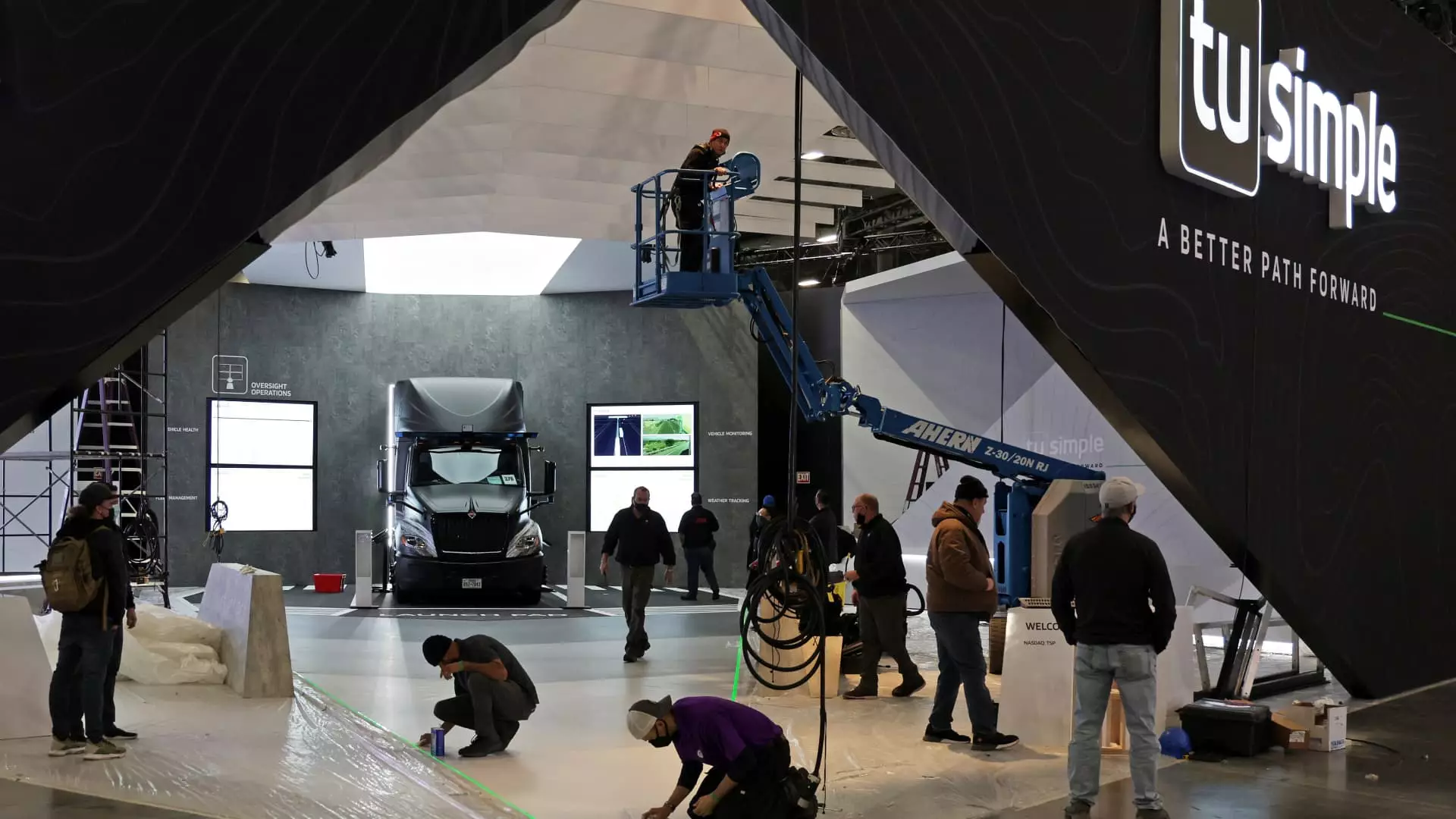In a surprising turn of events, TuSimple, once recognized as a pioneering force in autonomous trucking, has rebranded itself as CreateAI, shifting its focus toward the burgeoning sectors of video games and animation. This strategic pivot, announced recently, arrives at a time when self-driving technology enterprises are grappling with significant challenges—several, including General Motors’ Cruise, are retracting their investments in an industry that is undergoing a painful shakeout.
The journey of TuSimple, a company that operates at the juncture of the United States and China, has been crowded with hurdles. Safety concerns regarding its autonomous vehicles have plagued the company’s operations, leading to a lack of confidence among consumers and investors alike. Moreover, TuSimple faced a difficult legal setback, culminating in a staggering $189 million settlement related to a securities fraud lawsuit. Compounding these issues was its delisting from Nasdaq earlier this year, further complicating its already fragmented standing in the market.
Cheng Lu, who rejoined TuSimple as CEO a little over two years ago following a tumultuous departure, looks forward with cautious optimism. He aims to guide the company to profitability by 2026, betting on the potential success of a video game based on the beloved martial arts narratives penned by Jin Yong. With an initial version set to be released in 2026, Cheng anticipates revenue will soar into the “several hundred million” mark by 2027 following the full launch.
Despite the optimism surrounding future projects, TuSimple’s current financial situation remains rocky. The company reported an operating loss of $500,000 for the first three quarters of 2023 and has notably allocated $164.4 million toward research and development during the same period. The transition to CreateAI reflects a drastic reallocation of resources as the company seeks to reinvent itself in an entirely different industry, while simultaneously grappling with the accounting burdens left over from its previous ventures.
Co-founder Mo Chen’s longstanding relationship with the Jin Yong family plays a pivotal role in the new direction for CreateAI. Since 2021, Chen has led the initiative to develop animated features inspired by Jin Yong’s timeless tales. It’s clear that this collaboration has the potential to draw the attention of a wide audience, leveraging nostalgia while pioneering innovative content delivery through animation and gaming.
In conjunction with its new brand identity, CreateAI has introduced an ambitious open-source AI model named Ruyi, designed to enhance visual arts projects. This move has sparked the interest of the tech community, making the model accessible via platforms like Hugging Face. Cheng has expressed confidence that the transformation has, so far, been well received by shareholders, indicating a collective desire to focus on the potential of generative AI technologies—a domain that has risen to prominence due to innovations like OpenAI’s ChatGPT.
Plans to expand the workforce to approximately 500 employees in the coming year signal CreateAI’s intention to build a foundation robust enough to compete in the dynamic creative landscape. Previously, TuSimple operated with a staff of around 300, illustrating the scale of ambition behind this rebranding effort.
In August, prior to the announcement of its rebranding, TuSimple disclosed a partnership with Shanghai Three Body Animation to develop an animated film and video game based on the acclaimed science fiction series “The Three-Body Problem.” This collaboration is pivotal to CreateAI’s strategy of creating generative AI applications that enhance not just animations but also complex video games. Cheng estimates that the company could significantly reduce top-tier game production costs by around 70% over the next five to six years, a bold statement that underscores the transformative power of AI in creative industries.
Amidst the evolving landscape of AI and gaming, Cheng has also addressed questions about the potential repercussions of U.S. restrictions on Chinese technological firms. He asserts that CreateAI mitigates risks through diversified cloud computing partners, encompassing both U.S. and Chinese providers, thereby positioning the company to thrive despite geopolitical tensions.
CreateAI’s rebranding from TuSimple marks a dynamic shift in response to industry adversities and the need for reinvention. While the road ahead is fraught with challenges, the intersection of artificial intelligence with the creative sectors of gaming and animation offers unprecedented opportunities. As CreateAI charts its new path, the eyes of investors, creatives, and tech enthusiasts will undoubtedly be fixed on how effectively the company can transition from its troubled history into the world of digital innovation.

